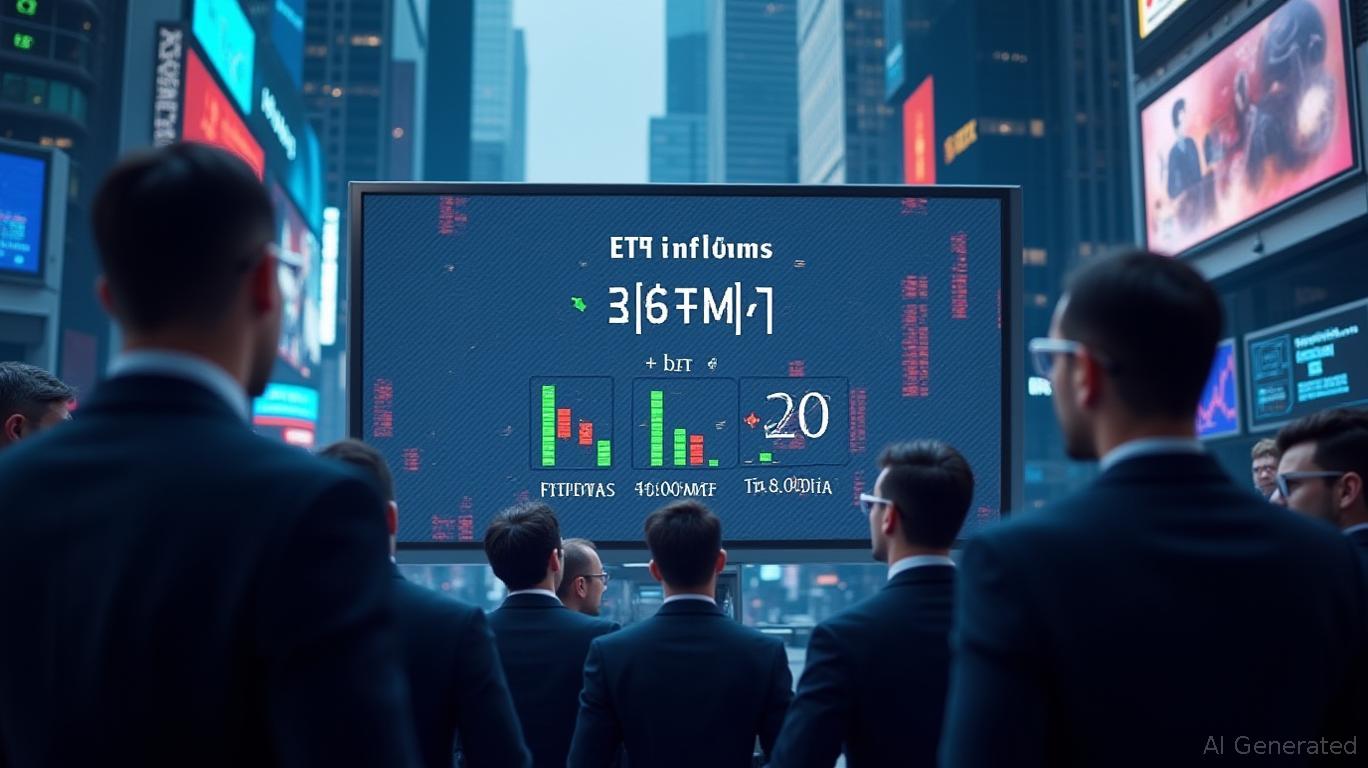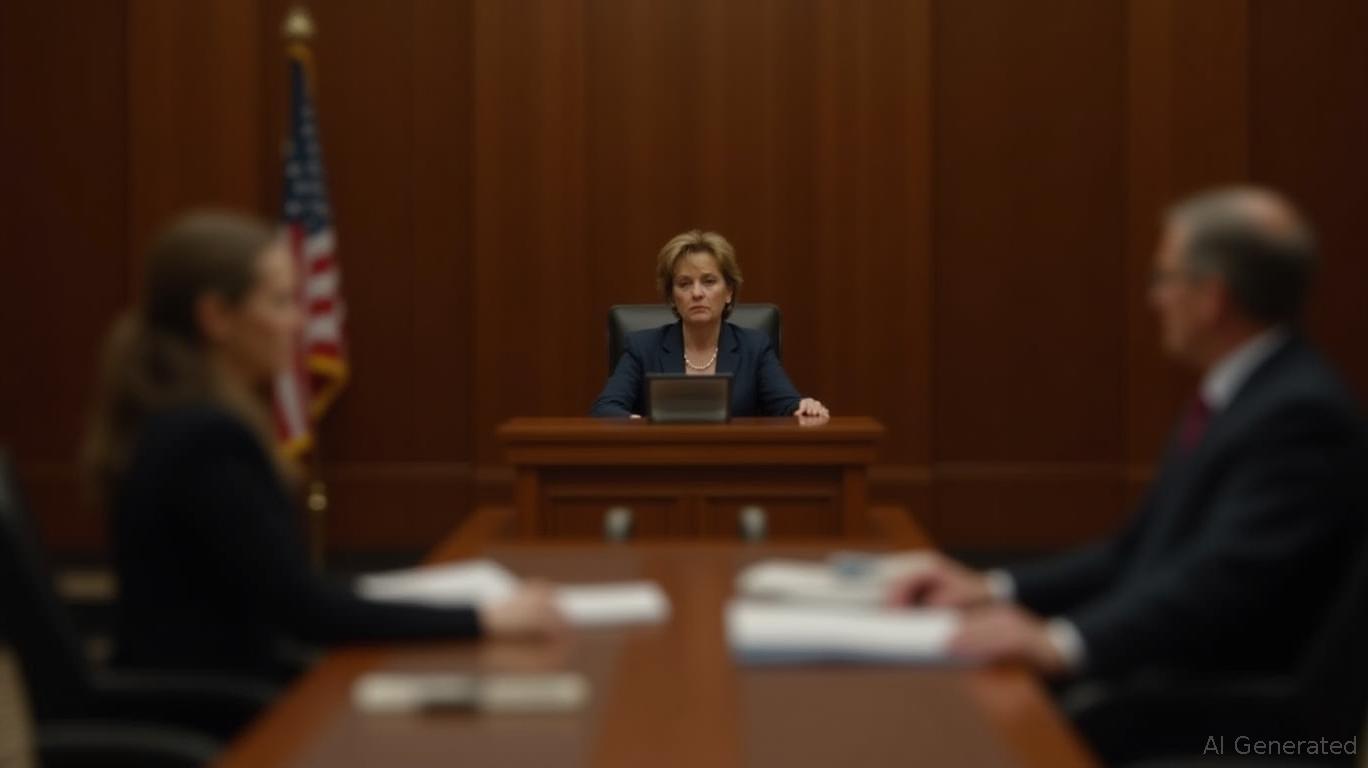Bitcoin News Update: Japan’s JPYC Stablecoin Poses a Challenge to Dollar Dominance While Bitcoin Whales Continue to Amass
- Bitcoin's illiquid supply dropped as 62,000 BTC ($7B) left long-term wallets, easing price pressure but leaving BTC below its $125,000 October peak. - Japan launched JPYC, a yen-pegged stablecoin backed by JGBs, challenging USD dominance in stablecoins and leveraging the yen's global usability for cross-border crypto settlements. - Regulatory clashes over prediction markets (e.g., Kalshi vs. New York) highlight tensions between innovation and jurisdiction, while JPYC's no-fee model and JGB backing positi
According to

In other news, Japan has introduced JPYC, the first stablecoin pegged to the yen, fully backed by local bank deposits and Japanese government bonds (JGBs). Developed by Tokyo-based fintech JPYC Inc., this token can be redeemed one-for-one with the yen and is closely supervised by Japan’s Financial Services Agency (FSA). This development challenges the U.S. dollar’s overwhelming presence in the stablecoin sector, which currently makes up more than 99% of global stablecoin activity. JPYC’s debut takes advantage of Japan’s status as a country with a fully convertible currency, allowing for international transactions and potentially laying the groundwork for Asian crypto settlements, as reported by
The yen’s ability to be used globally sets it apart from other Asian currencies such as the Korean won and Taiwan dollar, which are subject to strict capital restrictions. Japan’s clear regulatory framework and the yen’s position as the second most traded currency pair (USD/JPY at 16.85%) provide a strong foundation for JPYC’s growth. The stablecoin’s zero-fee structure, funded by interest from JGB reserves, offers a viable alternative to dollar-based tokens. Experts believe JPYC could enhance the yen’s international influence, especially in cross-border payments and digital commerce, while also increasing demand for JGBs—similar to how U.S. Treasuries underpin dollar stablecoins, according to
Prediction markets such as Kalshi continue to face regulatory challenges, as shown by their recent lawsuit against New York authorities over claims that their sports contracts qualify as gambling under state law. Kalshi maintains that federal regulations, specifically oversight by the Commodity Futures Trading Commission, should take precedence, as detailed in
The ongoing changes in the stablecoin landscape and regulatory discussions mark a significant turning point for digital finance. While JPYC’s rollout demonstrates Japan’s drive to lead in multi-currency digital assets, the evolving liquidity of Bitcoin and regulatory uncertainty for prediction markets reveal the persistent hurdles facing the industry.
Disclaimer: The content of this article solely reflects the author's opinion and does not represent the platform in any capacity. This article is not intended to serve as a reference for making investment decisions.
You may also like
Solana News Update: Institutions Favor Solana's Fast Transactions, Driving $417 Million ETF Inflows and Surpassing BTC and ETH
- Solana's blockchain hit $29B weekly DEX volume and 70M daily transactions in October, surpassing Ethereum . - Bitwise Solana ETF attracted $417M inflows, outpacing Bitcoin/ETH ETFs amid growing institutional adoption. - Network's 1,100 TPS throughput and 7% staking yields contrast with Ethereum's 3% yields and fragmented Layer 2 solutions. - Whale activity and $2T stablecoin transfers highlight ecosystem strength, while XRP's 25,000 daily accounts lag behind.

Supreme Court Set to Decide on Trump Tariffs Amid Dispute Over Presidential Authority
- U.S. Supreme Court will rule on Trump's global tariffs, testing presidential emergency powers under IEEPA. - Lower courts declared tariffs illegal, but Trump frames them as vital for national survival and economic growth. - Critics warn expanded executive authority risks congressional oversight, while small businesses face existential costs from 10%+ duties. - Ruling could invalidate $10B+ in revenue or enable future administrations to bypass legislative constraints through emergency declarations. - Case

Supreme Court Ruling May Reshape Balance Between Executive and Congressional Authority on Trade
- U.S. Supreme Court will decide if Trump's global tariffs under IEEPA exceed presidential authority, reshaping executive-congressional trade power balance. - Legal challenge argues IEEPA's emergency powers don't authorize tariffs, citing Congress' constitutional commerce regulation role and "major questions doctrine" violations. - Ruling could invalidate $100B+ in tariffs, destabilize fiscal strategy, and set precedent limiting or expanding future presidential trade power unilaterally. - Economic risks in

Bitcoin Updates: Institutions Wager on Bitcoin Pullback While Market Awaits Broader Economic Triggers
- Matrixport highlights Bitcoin's near-oversold levels as potential "buying the dip" opportunities amid declining on-chain activity and shifting market structure. - Institutional confidence grows as entities like The Smarter Web Company and Hyperscale Data accumulate BTC during price dips, signaling long-term strategic positioning. - Analysts warn sustained recovery depends on macro catalysts like regulation or economic shifts, despite technical indicators showing early stabilization and $100k support. - M
